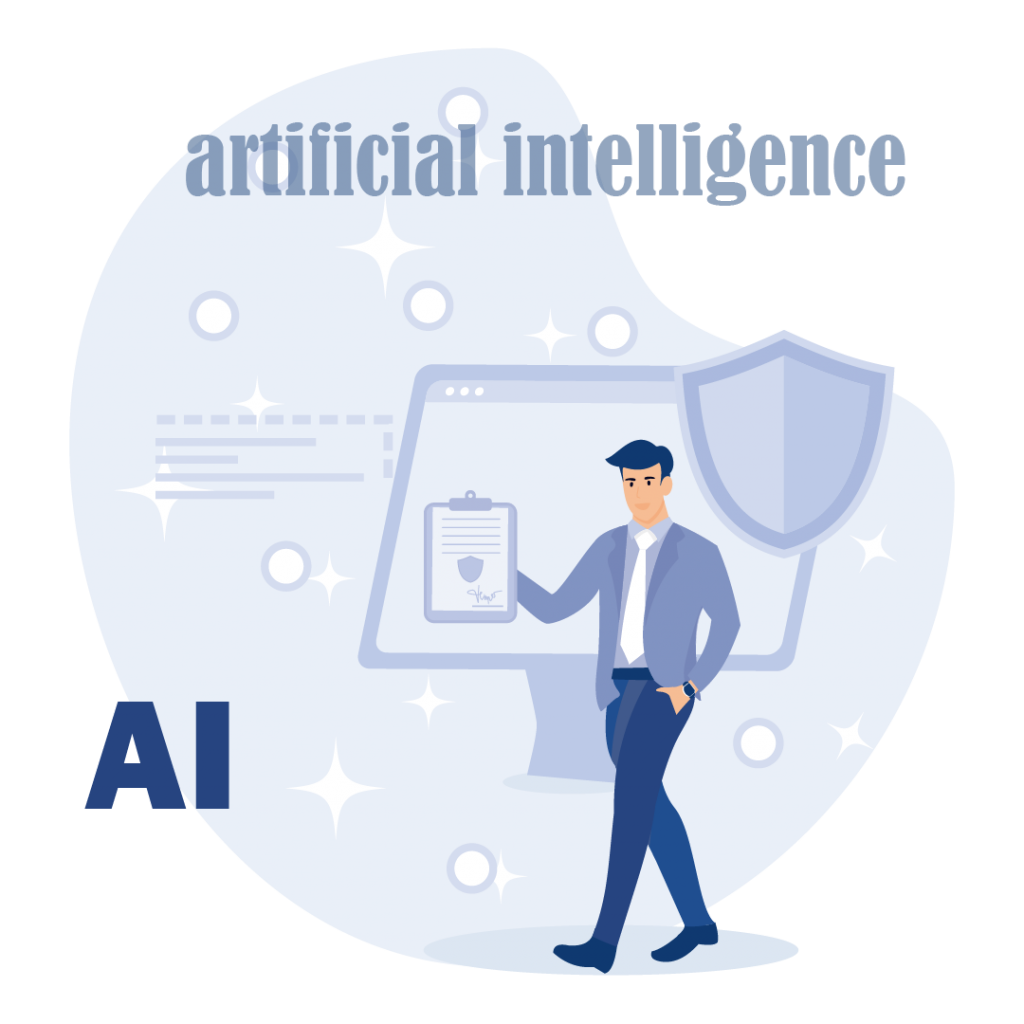Artificial intelligence (AI) is not confined to science fiction or academic research anymore. It’s a rapidly evolving field that influences our lives daily, from virtual assistants and recommendation systems to healthcare diagnostics and autonomous vehicles. As AI becomes more integral to various industries, staying updated with the latest developments and innovations is crucial.
This article explores the evolving landscape of AI, the challenges professionals face in keeping up, and the role of regular AI courses in ensuring that individuals remain at the forefront of innovation.
The Evolving Landscape of Artificial Intelligence
A. Recent Breakthroughs and Developments in AI
AI has seen remarkable progress in recent years. Some of the key developments include:
- Advancements in Machine Learning Algorithms:Machine learning algorithms have become more sophisticated, enabling AI systems to tackle complex problems and tasks. Algorithms like deep learning have revolutionized technology verticals like computer vision and natural language processing (NLP).
- The Rise of Deep Learning and Neural Networks: Deep learning techniques, inspired by the structure of the human brain, have played a pivotal role in AI’s progress. Neural networks have shown exceptional capabilities in various applications, from image recognition to speech synthesis.
- The Impact of Natural Language Processing (NLP):NLP has seen significant advancements, making it possible for AI systems to understand, generate, and interact with human language in more nuanced and context-aware ways. This has led to improvements in chatbots, virtual assistants, and language translation services.
B. Real-World Applications of AI in Various Industries
AI’s influence extends across diverse industries:
- Healthcare and Medical Diagnostics: AI is aiding medical professionals in diagnosing diseases and recommending personalized treatment plans. It is also accelerating drug discovery processes.
- Autonomous Vehicles and Transportation: Self-driving cars and drones are becoming a reality, promising safer and more efficient transportation systems.
- Finance and Predictive Analytics: AI-powered algorithms are transforming financial markets by predicting trends, automating trading, and enhancing risk management.
- E-commerce and Recommendation Systems: AI-driven recommendation engines are personalizing shopping experiences, improving customer satisfaction, and increasing sales.
The Challenge of Keeping Up with AI Innovations
While AI advancements offer immense potential, they also present several challenges:
A. The Constant Stream of Research Papers and Publications
AI research is dynamic and prolific. New papers, models, and techniques are published regularly. Staying updated with this influx of information can be overwhelming, especially for professionals with busy schedules.
B. The Emergence of AI in Unexpected Domains
AI is infiltrating unconventional areas such as creative arts, agriculture, and sports. Keeping abreast of AI’s applications in these diverse domains requires continuous learning and exploration.
C. The Competitive Job Market for AI Professionals
The demand for AI talent is soaring, resulting in fierce competition in the job market. To stand out and secure desirable positions, professionals need to demonstrate their expertise and adaptability in a rapidly evolving field.

The Benefits of Regular AI Courses
Regular AI courses provide structured and effective means of staying ahead in the AI field:
A. Staying Current with the Latest AI Techniques and Technologies
AI courses offer access to the latest insights and practical skills needed to adapt to changing trends and emerging technologies. They bridge the gap between theory and application.
B. Access to Expert Guidance and Mentorship
Enrolling in AI courses provides access to experienced instructors and mentors who can guide learners through complex topics and challenges. This mentorship fosters a deeper understanding of AI concepts.
C. Hands-On Experience Through Practical Assignments and Projects
AI courses often include hands-on projects that allow learners to apply AI techniques to real-world problems. These practical experiences reinforce theoretical knowledge and build problem-solving skills.
D. Building a Strong Foundation for Continuous Learning
Regular courses in AI not only offer immediate benefits but also build a solid foundation for lifelong learning in the field. They instill a mindset of continuous improvement and adaptation.
Types of Regular AI Courses
Various types of AI courses cater to different learning preferences and schedules:
A. Traditional University Courses
Many universities offer AIML courses, both as part of traditional degree programs and as standalone courses for professionals seeking to expand their knowledge. These courses provide comprehensive coverage of AI topics and may lead to formal certifications or degrees.
B. Online Courses and MOOCs (Massive Open Online Courses)
Online platforms like Great Learning, Coursera, edX, and Udacity offer AI courses that allow learners to study at their own pace from anywhere in the world. These courses often feature video lectures, interactive quizzes, and assignments.
C. Specialized AI Bootcamps and Workshops
Bootcamps and workshops provide intensive, hands-on training in AI. They are ideal for individuals seeking rapid skill development and practical experience. Some boot camps offer job placement assistance.
D. Self-Paced Learning and AI Communities
Self-motivated learners can take advantage of AI communities, online tutorials, and resources to design their learning path. This approach allows for flexibility but requires strong self-discipline.
Key Components of an Effective AI Course
When choosing an AI course, consider the following components for a comprehensive learning experience:
A. Comprehensive Curriculum Covering Fundamental Concepts and Cutting-Edge Topics
An effective AI course should encompass foundational AI concepts while exploring the latest developments and trends in the field. It should ensure a balance between theory and practical application.
B. Practical Exercises and Projects That Apply AI Techniques to Real-World Problems
Hands-on experience is essential for translating theoretical knowledge into practical skills. A good AI course should include assignments and projects that challenge learners to solve real-world problems using AI techniques.
C. Access to AI Tools and Resources
Courses should provide access to AI software, libraries, and datasets. These resources enable learners to experiment with AI techniques and gain practical skills.
D. Opportunities for Collaboration and Networking with Peers and Experts
Collaboration with peers and experts fosters a sense of community and provides opportunities for knowledge exchange and networking. Some AI courses facilitate collaboration through online forums or group projects.
Success Stories: Professionals Who Stayed Ahead Through Regular AI Courses
Real-life success stories demonstrate the transformative potential of regular AI education:
A. Case Studies of Individuals Who Enhanced Their Careers with AI Education
Professionals from various backgrounds have leveraged AI courses to advance their careers and contribute to AI innovation. These case studies showcase the diverse applications of AI knowledge across industries.
B. Demonstrating the Impact of AI Courses on Career Growth and Innovation
By highlighting the journeys of individuals who have expanded their career opportunities and made significant contributions to AI innovation, we illustrate the tangible benefits of regular AI education.
Overcoming Challenges in AI Education
To ensure the effectiveness of regular AI courses, individuals should be prepared to address common challenges:
A. Balancing Work, Life, and Continuous Learning
Managing time and priorities is crucial for professionals seeking to integrate regular AI courses into their schedules. Setting realistic goals and schedules can help strike a balance.
B. Financial Considerations and Scholarships
Access to quality AI education should be affordable and attainable. Scholarships and financial assistance programs can help mitigate the cost of courses, making AI education more accessible to a broader audience.
C. Addressing the Diversity Gap in AI Education and Careers
Efforts should be made to address the gender and diversity gap in AI education and careers. Creating inclusive learning environments and providing mentorship opportunities can help diversify the AI workforce.
Conclusion
The rapidly evolving landscape of artificial intelligence demands continuous learning and adaptation. Regular AI courses offer an effective means of staying at the forefront of AI innovation, enabling professionals and enthusiasts to harness the potential of AI and contribute to its transformative impact on society.
As AI continues to shape industries, individuals who invest in regular AI education not only advance their careers but also become active participants in shaping the future of technology and innovation. Embracing a culture of lifelong learning in AI is not merely an option; it is a necessity for staying relevant and influential in a world increasingly influenced by AI-driven advancements. By embracing regular AI courses, individuals can navigate the ever-changing AI landscape with confidence, innovation, and expertise.























